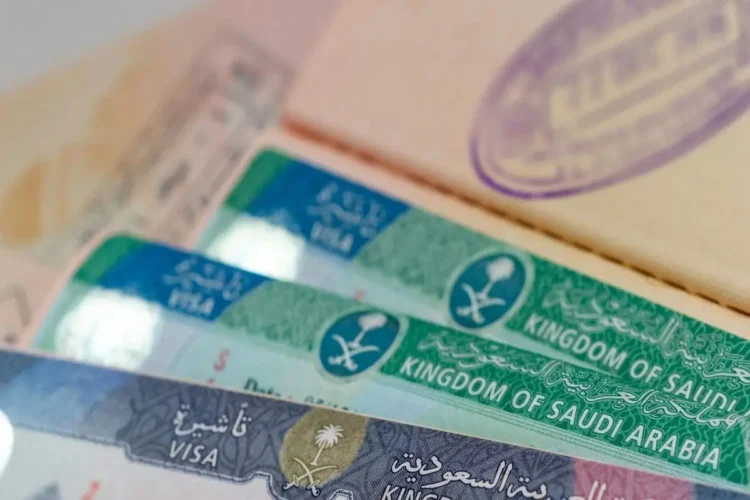In the year 2025, the growing geopolitical tension in the Middle East, especially in Iran and Israel, has created a stir in the travel industry. This has affected both visa policies and the smooth system of air travel. Member countries of the Gulf Cooperation Council (GCC) – United Arab Emirates (UAE), Saudi Arabia, Qatar, Bahrain, Kuwait and Oman – have been particularly affected by this crisis. In many countries, there have been incidents like barrier in travel to foreign nationals and cancellation of visa. These changes have had a profound impact on tourism, business travel and regional diplomatic relations.
1. Visa postponed for citizens of several countries
Some GCC countries, including Saudi Arabia, have temporarily postponed visa for citizens of countries like India, Pakistan, Bangladesh, Egypt, Sudan, Yemen, Algeria, Ethiopia, Iraq, Jordan, Morocco, Nigeria, Tunisia, Indonesia. This decision has been taken due to security concerns.
2. Airline flights canceled: Israel’s air border closed
Prominent airlines like Emirates, Etihad have canceled flights to Israel and surrounding countries. The decision was taken due to the closure of the Israeli airspace, causing disruption in regional and international flight routes.
3. Delay in flight and rear
Some flights are being diverted from alternative routes (such as Pakistan routes), which is increasing both travel time and expenses for passengers.
4. Tourist trouble: Thousands stranded in Israel
Thousands of tourists are stranded in Israel, as flights departed from there were suddenly canceled. Now these passengers are trying to return home with the help of alternative routes.
5. Economic Effect: Dual hit on migrant citizens
Many migrant citizens are suffering financial loss due to visa cancellation and cancellation of flight. Visa fee is often non-refundable, causing them to face heavy losses.
6. Political tension: Effect of conflict between Israel and Iran
The increasing tension between Israel and Iran has endangered regional air security. As a result, many countries have temporarily shut down their airspace, affecting air traffic throughout the Middle East.
7. Impact on tourism: Tourism falls from regional instability
Due to political instability, tourism between GCC countries and Israel has had a profound impact. This has not only affected tourists, but has also put pressure on local economies.
8. Impact on international flights: Global travelers’ difficulties
Long -distance international flights have also been affected, as many airlines have either closed or changed the route via the Middle East.
9. Changes in visa policies: strictness of GCC countries
Countries like Saudi Arabia have laid a temporary ban on the new visit visa, making the journey of Gulf countries even more difficult for foreign nationals.
10. Uncertainty among passengers: it is difficult to plan
It has become difficult for passengers to plan for passengers due to continuous changing visa policies, flights and security concerns. The travel industry is facing huge losses.
Effect on visa cancellation of stress in Middle East
The Middle East has long been a sensitive area from geopolitical terms, where the ongoing tension between many countries also affects the Gulf countries. In the year 2025, these tension is deepened, due to which there have been major changes in policies in GCC (Gulf Cooperation Council) countries.
The most prominent of these changes is the cancellation of visa of foreign nationals, which has had immediate effect to thousands of passengers and migrants. This decision is not only disrupting travel plans, but is also causing uncertainty and concern for people planning or traveling in Gulf countries.
Saudi Arabia’s strictness: Visa canceled due to security concerns, migrant and tourist in crisis
One of the most influential member countries of the Gulf Cooperation Council (GCC), Saudi Arabia has taken a special stance on visa cancellation amid security concerns. As the regional tension increased, Saudi Arabia’s General Directorate of Passports (Jawajat) started implementing strict visa policies.
Under these policies, some foreign nationals-especially the exit and re-entry visa of people coming from those countries, were canceled, either directly involved in regional conflicts or who are stressed with Saudi Arabia. These decisions were justified in terms of national security, but due to this many migrant workers and passengers were trapped, who had no clear way to return or move forward.
Effect on visa ban and tourism in Qatar
Qatar, which has become a luxury destination for European tourists, is now seeing a decline in the number of international tourists due to visa restrictions. It has shocked the travel and hospitality sector of the country, and now they have to think of their business strategies again.
UAE’s humanitarian initiative: Oveste Fine waived on Iranians
The United Arab Emirates has announced a different stand and announced the waiver of Overstay Fines for Iranian citizens.
This was considered a message of mercy and support for the Iran-Israel struggle and the suspension of flights.
This decision was praised internationally, especially while other GCC countries have taken drastic steps.
Obstruction of flight services: airspace closed, rearuting and expensive travel
Major airlines like Emirates, Qatar Airways, Fly Dubai, and Etihad had to cancel their flights or dye their flights due to the airspace of Israel and other countries.
Most of the flights are now going through alternative routes like Pakistan, due to which:
Travel time has increased
Operation cost has increased
Passengers are having heavy inconvenience
Deep impact on tourism industry
Tourism in GCC countries, which is the major pillar of the economy, has been the most affected:
Tourism centers like Dubai and Abu Dhabi had to change their marketing strategies
Haj and Umrah Yatras have also been affected; Saudi Ministry had to adopt new policies
The plan to expand the post -World Cup in Qatar is now in crisis
GCC Visa Integration Scheme: A beam of solution
GCC countries are working on Unified GCC Tourist Visa scheme, which will provide passengers to travel to all 6 countries from a visa. However, its success depends on how quickly regional political stress is resolved.






